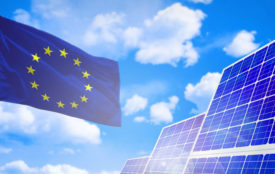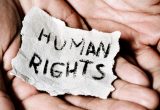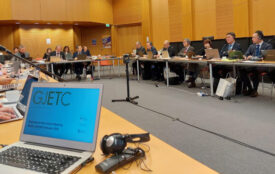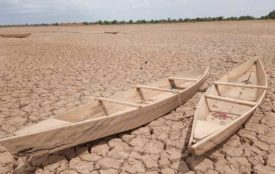Consensus Reached on New Sustainable Development Agenda to be adopted by World Leaders in September
Ambitious new agenda would end poverty by 2030 and universally promote shared economic prosperity, social development and environmental protection.
The 193 Member States of the United Nations reached agreement today on the outcome document that will constitute the new sustainable development agenda that will be adopted this September by world leaders at the Sustainable Development Summit in New York.
Concluding a negotiating process that has spanned more than two years and has featured the unprecedented participation of civil society, countries agreed to an ambitious agenda that features 17 new sustainable development goals that aim to end poverty, promote prosperity and people’s well-being while protecting the environment by 2030.
UN Secretary-General Ban Ki-moon welcomed the agreement, saying it “encompasses a universal, transformative and integrated agenda that heralds an historic turning point for our world.”
“This is the People’s Agenda, a plan of action for ending poverty in all its dimensions, irreversibly, everywhere, and leaving no one behind. It seeks to ensure peace and prosperity, and forge partnerships with people and planet at the core. The integrated, interlinked and indivisible 17 Sustainable Development Goals are the people’s goals and demonstrate the scale, universality and ambition of this new Agenda.”
Mr. Ban said the September Summit, where the new agenda will be adopted, “will chart a new era of Sustainable Development in which poverty will be eradicated, prosperity shared and the core drivers of climate change tackled.”
He added that the UN System stands ready to support the implementation of the new agenda, which builds on the successful outcome of the Third International Conference on Financing for Development in Addis Ababa, and which, he said, will also contribute to achieve a meaningful agreement in the COP21 in Paris in December.
More than 150 world leaders are expected to attend the Sustainable Development Summit at the UN headquarters in New York between 25 to 27 September to formally adopt the outcome document of the new sustainable agenda.
The new sustainable development agenda builds on the success of the Millennium Development Goals, which helped more than 700 million people escape poverty. The eight Millennium Development Goals, adopted in 2000, aimed at an array of issues that included slashing poverty, hunger, disease, gender inequality, and access to water and sanitation by 2015.
The new sustainable development goals, and the broader sustainablity agenda, go much further, addressing the root causes of poverty and the universal need for development that works for all people.
The preamble of the 29-page text, “Transforming Our World: The 2030 Agenda for Sustainable Development,” states, “We are resolved to free the human race from the tyranny of poverty and want and to heal and secure our planet.” It continues, “We are determined to take the bold and transformative steps which are urgently needed to shift the world onto a sustainable and resilient path. As we embark on this collective journey, we pledge that no one will be left behind.”
Rio+20 and the intergovernmental process
At the Rio+20 Conference of 2012, Member States agreed to launch a process to develop a set of sustainable development goals, which will build upon the Millennium Development Goals. The Millennium Development Goals have proven that goal-setting can lift millions out of poverty, improve well-being and provide vast new opportunities for better lives. It was agreed that the new goals would be global in nature and universally applicable to all countries while taking into account different national realities, capacities and levels of development and respecting national policies and priorities.
The negotiations were co-facilitated by the UN Permanent Representative of Ireland, Ambassador David Donohue, and the UN Permanent Representative of Kenya, Ambassador Macharia Kamau, over two years. The inclusive and transparent consultations by Member States, with the strong engagement of civil society and other stakeholders, have served as a basis for the conclusion of the intergovernmental negotiations on the emerging universal and people-centred agenda.
Core elements of the agreed outcome document
The outcome document highlights poverty eradication as the overarching goal of the new development agenda and has at its core the integration of the economic, social and environmental dimensions of sustainable development. The emerging development agenda is unique in that it calls for action by all countries, poor, rich and middle-income. Member States pledge that as they embark on this collective journey, no one will be left behind. The ‘five Ps’—people, planet, prosperity, peace, and partnership—capture the broad scope of the agenda.
The 17 sustainable goals and 169 targets aim at tackling key systemic barriers to sustainable development such as inequality, unsustainable consumption and production patterns, inadequate infrastructure and lack of decent jobs. The environmental dimension of sustainable
development is covered in the goals on oceans and marine resources and on ecosystems and biodiversity, bringing core issues into the goal and target framework.
The means of implementation outlined in the outcome document match its ambitious goals and focus on finance, technology and capacity development. In addition to a stand-alone goal on the means of implementation for the new agenda, specific means are tailored to each of the sustainable development goals.
Member States stressed that the desired transformations will require a departure from “business as usual” and that intensified international cooperation on many fronts will be required. The agenda calls for a revitalized, global partnership for sustainable development, including for multi-stakeholder partnerships. The agenda also calls for increased capacity-building and better data and statistics to measure sustainable development.
An effective follow-up and review architecture – a core element of the outcome document – will be critical to support the implementation of the new agenda. The High Level Political Forum on sustainable development, set up after the Rio+20 Conference, will serve as the apex forum for follow up and review and will thus play a central role. The General Assembly, the Economic and Social Council and specialized agencies will also be engaged in reviewing progress in specific areas.
Based on the outcome document, the agenda will include a Technology Facilitation Mechanism to support the new goals, based on multi-stakeholder collaboration between Member States, civil society, business, the scientific community, and the UN system of agencies. The Mechanism, which was agreed at the Addis Conference in July, will have an inter-agency task team, a forum on science, technology and innovation, and an on-line platform for collaboration.
The successful outcome of the Addis Conference gave important positive momentum to the last stretch of negotiations on the post-2015 development agenda. It is expected that the consensus reached on the outcome document will provide momentum for the negotiations on a new binding climate change treaty to culminate at the Climate Change Conference in Paris from 30 November to 11 December 2015.
- The draft agreement can be found at https://sustainabledevelopment.un.org/post2015
- “TRANSFORMING OUR WORLD: THE 2030 AGENDA FOR SUSTAINABLE DEVELOPMENT”
OUTCOME DOCUMENT FOR THE UN SUMMIT TO ADOPT THE POST-2015 DEVELOPMENT AGENDA








